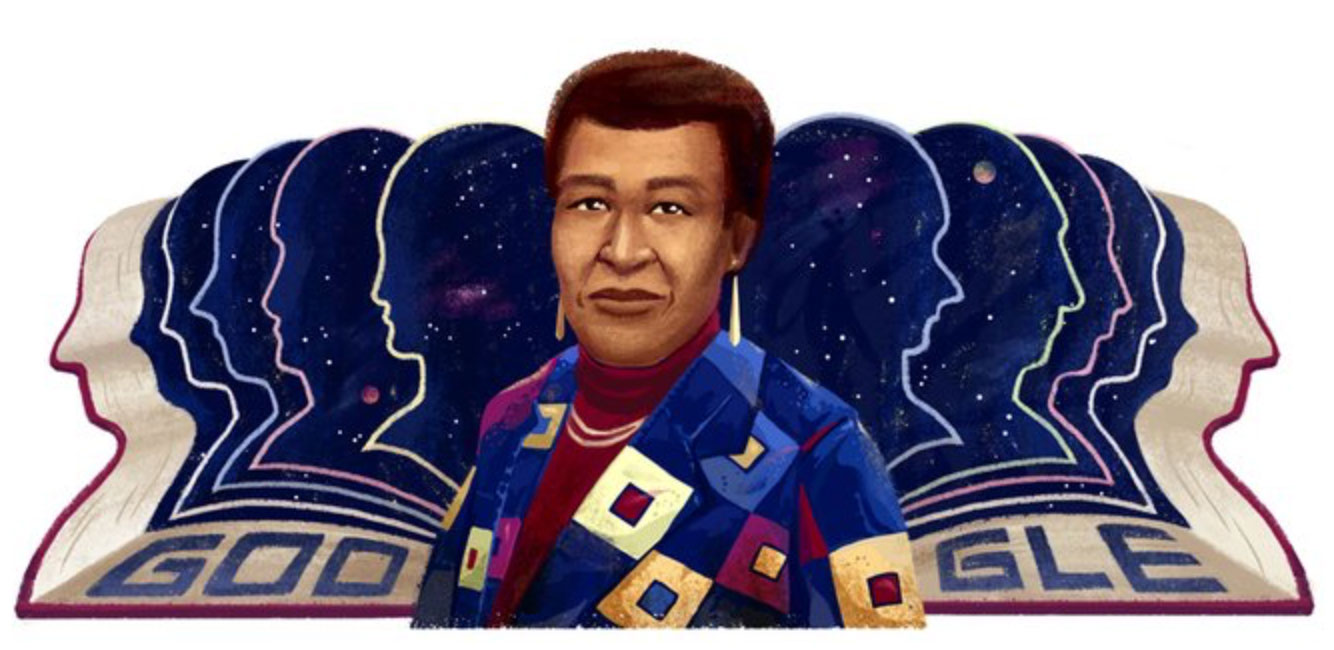Touching on Afrofuturism
Anderson writes, “over the last decade, an embryonic movement examining the overlap between race, art, science and design has been stirring and growing beneath the surface. Afrofuturism is the current name for a body of systematic Black speculative thought originating in the 1990s as a response to postmodernity that has blossomed into a global movement the last five years. Although contemporary Black speculative thought has roots at the nexus of 19th century scientific racism, technology, and the struggle for African self-determination and creative expression, it has now matured into an emerging global phenomenon. Afrofuturism 2.0 is the beginning of both a move away and an answer to the Eurocentric perspective of the 20th century’s early formulation of Afrofuturism that wondered if the history of African peoples, especially in North America, had been deliberately erased.”
What caught my interest initially was the phrase “black speculative thought” as I have been researching criticisms of Speculative and Critical Design, specifically that SCD revolves around a “self-centered privileged understanding of the world.” Other criticisms include the lack of a feminist perspective and that Speculative and Critical Design exists only in the academic setting, practiced mainly by Caucasian men. Black speculative thought and Afrofuturism suggests the welcome expansion of the fields of Speculative and Critical Design and the decolonialization of design in general.
The term Afrofuturism was coined by Mark Dery in his 1993 article Black to the Future: Interviews with Samuel R. Delany, Greg Tate, and Tricia Rose. In the article Dery compares the marginalization of science fiction to that of African Americans. He writes, “African Americans, in a very real sense, are the descendants of alien abductees; they inhabit a sci-fi nightmare in which unseen but no less impassable force fields of intolerance frustrate their movements; official histories undo what has been done; and technology is too often brought to bear on black bodies (branding, forced sterilization, the Tuskegee experiment, and tasers come readily to mind). Moreover, the sublegitimate status of science fiction as a pulp genre in Western literature mirrors the subaltern position to which blacks have been relegated throughout American history.”
Drey wonders how a people with a systematically erased past can conceptualize a future. This reminds me of the quote in the last post from Ursula K. Le Guin, that we need “the voices of writers who can see alternatives to how we live now, can see through our fear-stricken society and its obsessive technologies to other ways of being, and even imagine real grounds for hope.” In imagining a future that challenges the all-white utopias presented within most science fiction, Afrofuturism offers hope in the present. Ytasha L. Womack, author of Afrofuturism: The World of Black Sci Fi & Fantasy Culture and an award-winning producer, director, author, and innovator says that, “Afrofuturism relates to everyone because it provides them with an opportunity to think about the future and then feel like they have agency and a role in that future.”

We then watched an interview in which Alexis Gumbs explains how important Octavia Butler is to her. She says, “I feel really grateful for a space to actively create my relationship to Octavia Butler’s legacy and to able to name myself as someone who participates in that legacy and then act on it with a collective of people is amazing”.
The titles used in this video are mine! I designed them for iMovie ’09. In a silly way it makes me feel more connected to this video.
Octavia Butler was an African-American author of science fiction. A multiple recipient of both the Hugo and Nebula awards, in 1995 she became the first science-fiction writer to receive a MacArthur Fellowship (Wikipedia). Butler is new to me too and my list of books to read over the summer keeps growing.
While not mentioned specifically in the videos, Alexis Pauline Gumbs’ work in speculative fiction is classified as Afrofuturism and Octavia Butler is commonly referred to as the “Mother of Afrofuturism” (Africafutura and Revolt). Just a note though that “some critics note that her ties to Afrofuturism, including writing the basis of what Afrofuturistic literature draws from, were actually more multi-ethnic and multi-species than what today’s definition of Afrofuturism tends to entail” (Inverse).
Returning to Afrofuturism 2.0 & The Black Speculative Art Movement: Notes on a Manifesto by Reynaldo Anderson, he concludes by writing, “in contrast to the occidental speculative design approach, the Black Speculative Art Movement freely embraces the Africanist approach to speculative design and incorporates earthly and unearthly intuitive aspects of Esoterica, Animism, and Magical Realism.” I need to do more research about Afrofuturism to try to grasp it a bit better, but this kind of diverse and inclusive perspective could greatly expand the way we imagine the future and could allow us a greater diversity of imaginaries and critique.
